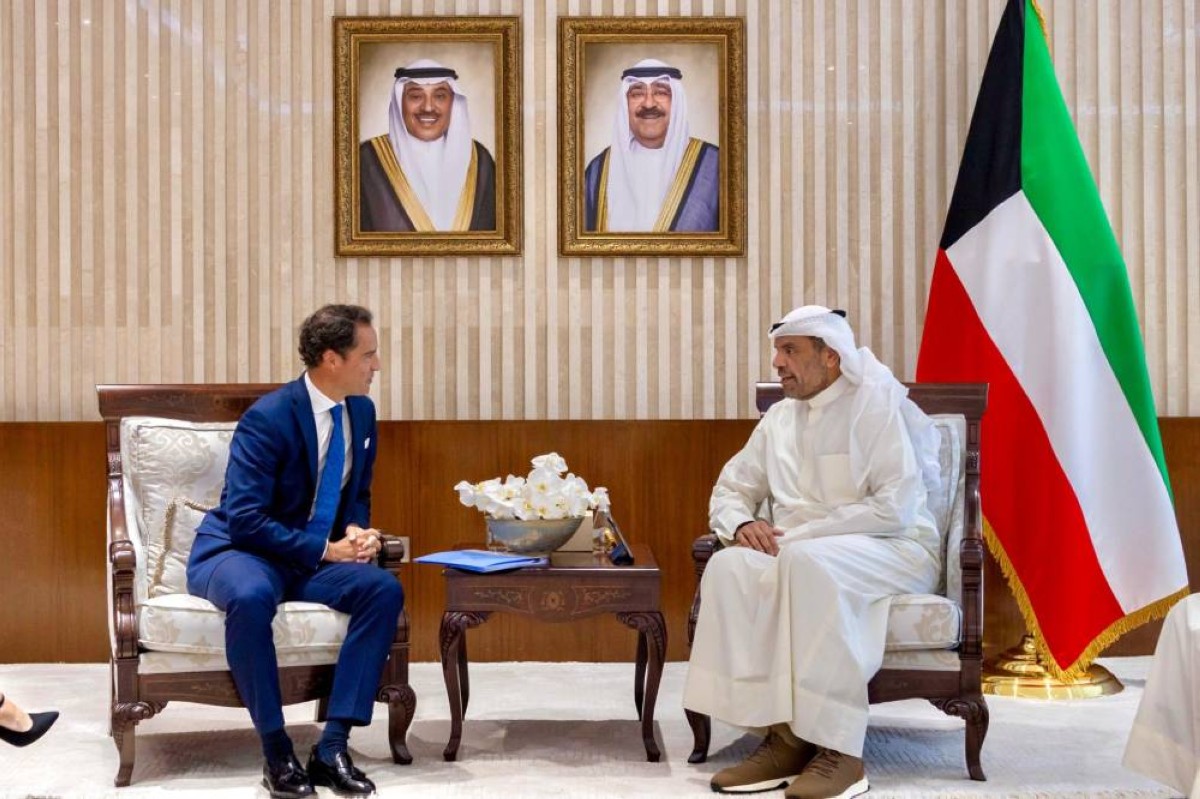KUWAIT: Javier Colomina, NATO’s Special Representative for the Southern Neighborhood, emphasized that the Gulf region remains a top priority for NATO’s engagement with its southern neighborhood. During his visit to Kuwait, Colomina discussed the ongoing challenges facing the Middle East and their broader implications for global stability, underscoring NATO’s commitment to deepening cooperation with Kuwait on regional security and political issues.
In remarks delivered during the 21st meeting of the Presidents and Heads of Gulf Red Crescent Societies, hosted Thursday in Kuwait, Colomina praised the outstanding humanitarian contributions made by Kuwait and highlighted the country’s leadership role within the Gulf Cooperation Council (GCC). He extended his gratitude to His Highness the Amir of Kuwait, Sheikh Meshal Al-Ahmad Al-Jaber Al-Sabah, for his strong support of Gulf unity, development, and international collaboration.
Colomina reiterated that NATO seeks to enhance political dialogue with GCC countries, with particular focus on deepening ties with states outside the Istanbul Cooperation Initiative (ICI) — a key NATO outreach program launched to strengthen security collaboration with the Gulf. He emphasized that one of the main objectives of his visit was to explore ways to further increase the frequency and depth of political discussions with Gulf nations, particularly in light of Kuwait’s leadership of the 45th session of the GCC.
Ambassador Abdulaziz Al-Jarallah
A centerpiece of Kuwait’s collaboration with NATO is the NATO-ICI Regional Center in Kuwait City, which Colomina hailed as a leading model for successful partnership between NATO and the Gulf region. The center serves as a hub for political dialogue, military cooperation, training, and capacity-building efforts between NATO and its Gulf partners. Colomina noted that the center enables cooperation not only with ICI member states but also with a broader range of regional partners, enhancing the alliance’s engagement across multiple fields including security, defense, diplomacy, and crisis management.
In his discussions with Kuwaiti officials, Colomina addressed key regional issues such as ongoing conflicts, terrorism, cybersecurity threats, and emerging challenges like climate change, food security, and energy security. He emphasized that developing joint approaches to these issues is essential for ensuring both regional and global stability.
From the Kuwaiti side, Ambassador Abdulaziz Al-Jarallah, Assistant Foreign Minister for International Organizations, reaffirmed Kuwait’s strong and continuous commitment to its partnership with NATO. Al-Jarallah highlighted Kuwait’s early participation in the Istanbul Cooperation Initiative in 2004 and the significant milestone of hosting the NATO-ICI Regional Center in 2017 — a first for the region — as examples of Kuwait’s leadership and active engagement in international security cooperation.
Al-Jarallah noted that the center plays a critical role in hosting regular training sessions, workshops, and seminars in coordination with NATO officials and member states. These activities address not only traditional security concerns but also new global challenges that demand innovative and coordinated responses.
He stressed that Kuwait remains deeply committed to diplomacy, mediation, and preventive dialogue as primary tools for resolving international disputes and promoting peace. Kuwait’s foreign policy, he added, consistently prioritizes stability, peaceful coexistence, and constructive engagement with both regional neighbors and the international community.
Looking ahead, both sides affirmed the importance of maintaining and expanding high-level visits, political consultations, and practical cooperation between NATO and Kuwait. They agreed that sustained engagement would be vital for addressing shared challenges and advancing collective security and prosperity in the Gulf region and beyond. — KUNA


















